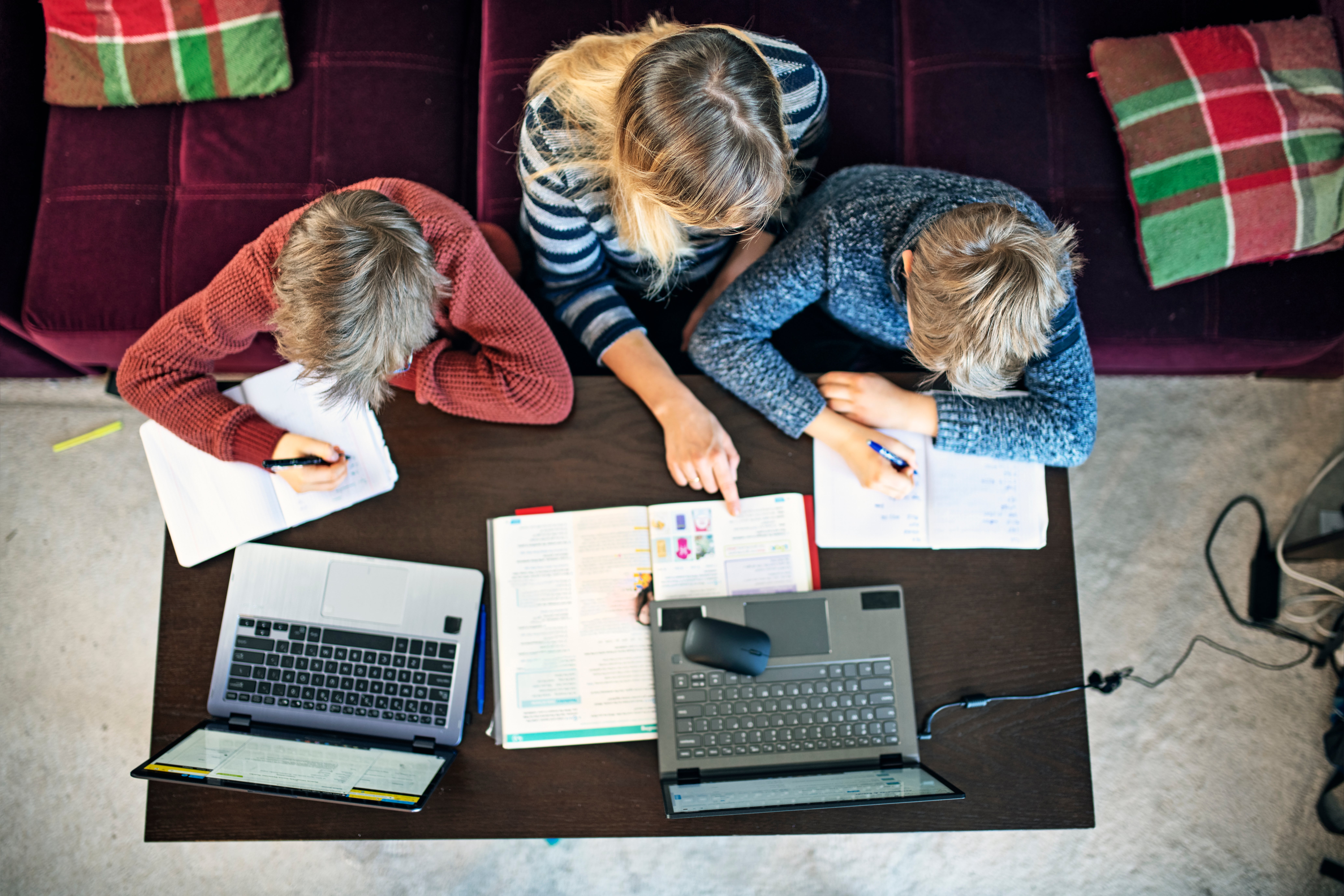Warning children will be ‘lost outside system’ as homeschooling soars after pandemic
Exclusive: Union leaders say children could ‘become lost outside the system’ without official homeschooling register

Children could be left without welfare checks due to homeschooling, the government has been warned, as new figures show a surge in the numbers being educated at home.
England’s children’s commissioner and education unions have raised concerns over the safeguarding of home-educated pupils and warned some could drop off the radar of authorities without increased protections.
Numbers of home-educated students have jumped by 40 per cent since 2018, Freedom of Information requests reveal. In the 171 local authorities that provided data, there were 81,250 children learning at home in 2022 compared to 57,531 four years ago, before the pandemic.
But the true numbers could be higher as there is currently no official register that tracks exactly how many pupils are being educated outside of school and it is not compulsory for parents to inform local authorities.
The government scrapped plans for a formal register when the Schools Bill was abandoned earlier this month.
Parents are not obliged to tell local authorities or schools that they are homeschooling their children, but it is recommended. If schools know a child has been taken out for homeschooling, they are obliged to tell the local council.
The latest figures continue an upward trend revealed in previous research. Figures published by former children’s commissioner Anne Longfield in 2019 showed there were 60,000 children learning at home in 2018, a 27 per cent increase on 2017, with 20 per cent rises in each of the previous five years.
Separate research suggests homeschooling continued to rise since then. An annual survey of English councils by the Association of Directors of Childrens Service estimated 81,000 children were being home-educated in October last year - up by 7 per cent from 75,600 in 2020.
Numbers dipped slightly in 2019 to reach 54,000 before shooting back up again by 38 per cent in October 2020 after the Covid pandemic hit, according to the survey.
The Independent spoke to parents who started homeschooling their children after a positive experience during the Covid pandemic, when pupils were kept at home for months during lockdowns. Their children enjoyed greater freedom and one-to-one teaching tailored to their needs, they said.
But now pandemic restrictions are over the government is facing calls for greater oversight of homeschooled pupils as more make the switch permanently, to make sure children don’t suffer as a result.

Dame Rachel de Souza, the children’s commissioner, said it was an “absolute priority” to get children back into school.
“I truly believe that school is the best place for children, not just in educational terms, but in terms of wellbeing and safeguarding too,” she told The Independent.
“Those that choose to exercise their right within the law to home educate are indeed entitled to do that, however, I do think that it is important to know who they are and where they are to make sure that children are accounted for and have support if it is needed.”
“It should also not be the case that an already vulnerable child is not educated at school.”
The Freedom of Information requests were submitted by Wolsey Hall Oxford, a homeschooling college that offers remote courses and champions the benefits of learning at home.
Lee Wilcock from Wosely Hall said: “What seems very apparent is that those parents who chose to try homeschooling for the first time during Covid-19 have realised how beneficial online learning can be.
“Homeschooling allows children to learn at their own pace and at a time which suits them. It is a much more child-centred approach to education than is available in a traditional classroom.”

This was what James Buss, a father in Cambridgeshire, found. His 13-year-old son, Connor, struggles with focus and would get distracted in class. He would end up scrambling to finish work or getting detentions, his father said.
Connor moved to homeschooling after thriving during the Covid pandemic. His son benefits from having more freedom to take a break - playing on the trampoline or taking his bike out - when he needs a break with schoolwork, the 39-year-old father said.
Sherrylyn Balogun had a similar experience. One of her son’s has autism spectrum disorder, she says, and she has been able to tailor his home education to his needs - for example spending as much time as needed tasks or learning by drawing instead
Paul Whiteman, the general secretary of the NAHT school leaders union said the reasons for an increase in homeschooling will be complex and varied.
“They will range from concerns regarding Covid over the last few years, to the strain on the SEND [special educational needs and disabilities] system, with insufficient funding and capacity to support children’s needs,” he told The Independent.
But even so, he said the increase was “something the government should look at, as it is concerning”.
“Our members do worry about the safeguarding of children not in school. Children at risk could be missed, with neither school nor local authority knowing for certain what has happened to them,” he continued.
“Without an officially maintained register, there remains the risk of children becoming lost outside the system.”
Geoff Barton from the Association of School and College Leaders said local authorities try to track the number of children not in school, ensure there are no safeguarding concerns and provide appropriate support.
But without a mandatory register, he said: “It is very likely that many children fall through the net.”
The union leader said: “Many families make a considered decision to educate their children at home and put in place a programme of learning and activities in a safe environment.
“However, home education is a major undertaking and it is important to ensure that all children are receiving an adequate standard of education.
“Of particular concern is the potential for safeguarding issues, for example, where children who are not in school are in fact being taught in unregistered settings.”
A Department for Education spokesperson said: “We continue to work with local authorities on their non-statutory registers of children not in school, and remain committed to legislating for statutory registers to ensure all children are safe and not missing education.
“This will not impact the right of parents who want to educate their children at home, provided it is done with the child’s best interests in mind and the education is suitable.”
Join our commenting forum
Join thought-provoking conversations, follow other Independent readers and see their replies
Comments





Bookmark popover
Removed from bookmarks